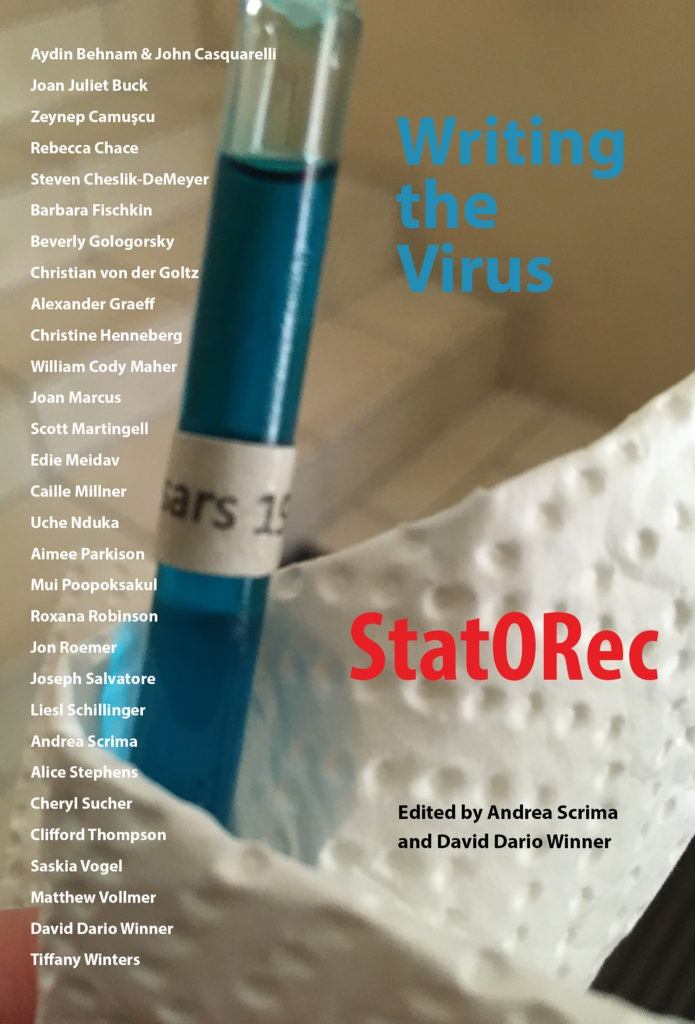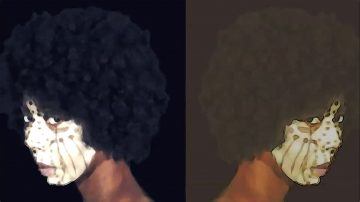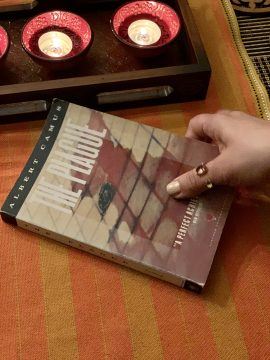by Akim Reinhardt
 Two profound horrors have plagued the world in recent times: the Covid-19 pandemic and the Trump presidency. And after years of dread, their recent decline has brought me a brief respite of peace.
Two profound horrors have plagued the world in recent times: the Covid-19 pandemic and the Trump presidency. And after years of dread, their recent decline has brought me a brief respite of peace.
Not that my peace was ever disturbed as much as many others’. One reason is that unlike the ICU patient or the undocumented immigrant child, neither horror has ever afflicted or assailed me directly. Another is that I have long been comfortable with impermanence, the reality that nothing lasts forever. Not the United States. Not me. Should the one be toppled by a dictatorial demagog or the other felled by a microscopic, multiplying coronavirus, so be it. All must end eventually.
Yet here we are, steps closer to but still somewhere short of the Great Undoing that the pathogen and the politician relentlessly dragged us towards. And only now, as their grips finally begin to release a bit, can I recognize more fully how each, in its own way, had previously commanded my attention, either undermining my peace or at least forcing me to redefine it.
First, the blinding orange glow.
Just the other day it dawned on me that not only hadn’t I thought about Donald Trump for a couple of weeks, but I also had not spent much energy charting the republic’s precipitous decline and decay. That is not to say I see Joe Biden as some kind of savior, or even have high expectations for his administration. I don’t. Nor am I convinced that the world is better off with the United States than without it. There are strong arguments either way. But regardless, to live in the United States during the Trump presidency, and to recognize the very real threat it posed to American culture and to U.S. constitutional systems and democratic and institutions, meant that you had to, at the very least, pay close attention to their ongoing perversion and erosion. Because it’s one thing to be intellectually okay with the United States’ eventual demise. It’s another to live through various stages of it while facing down the very real prospect of increased oligarchy, theocracy, nativism, and racism. Read more »





 I’m sitting in front of my window on the world sipping a disappointing Cabernet Sauvignon from Napa Valley and thinking about travel plans for next summer and fall. I’m proceeding as if everything were normal knowing full well they won’t be, especially not with our “leadership”. Every time I try to write something insightful about wine, these lyrics from the bard of Duluth run through my mind:
I’m sitting in front of my window on the world sipping a disappointing Cabernet Sauvignon from Napa Valley and thinking about travel plans for next summer and fall. I’m proceeding as if everything were normal knowing full well they won’t be, especially not with our “leadership”. Every time I try to write something insightful about wine, these lyrics from the bard of Duluth run through my mind: